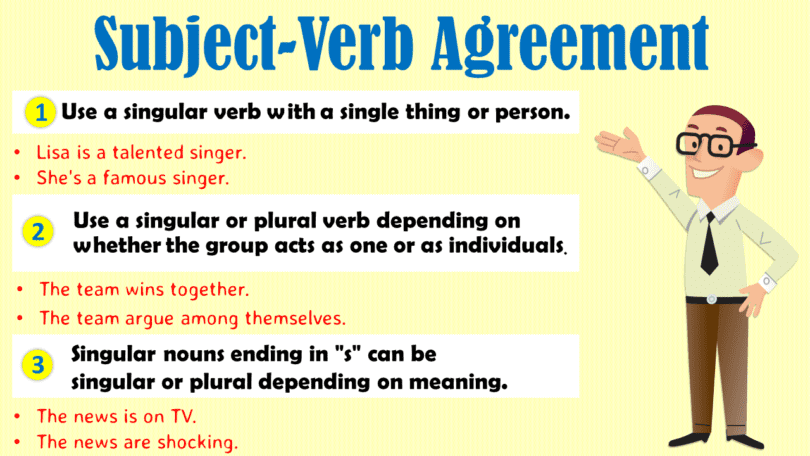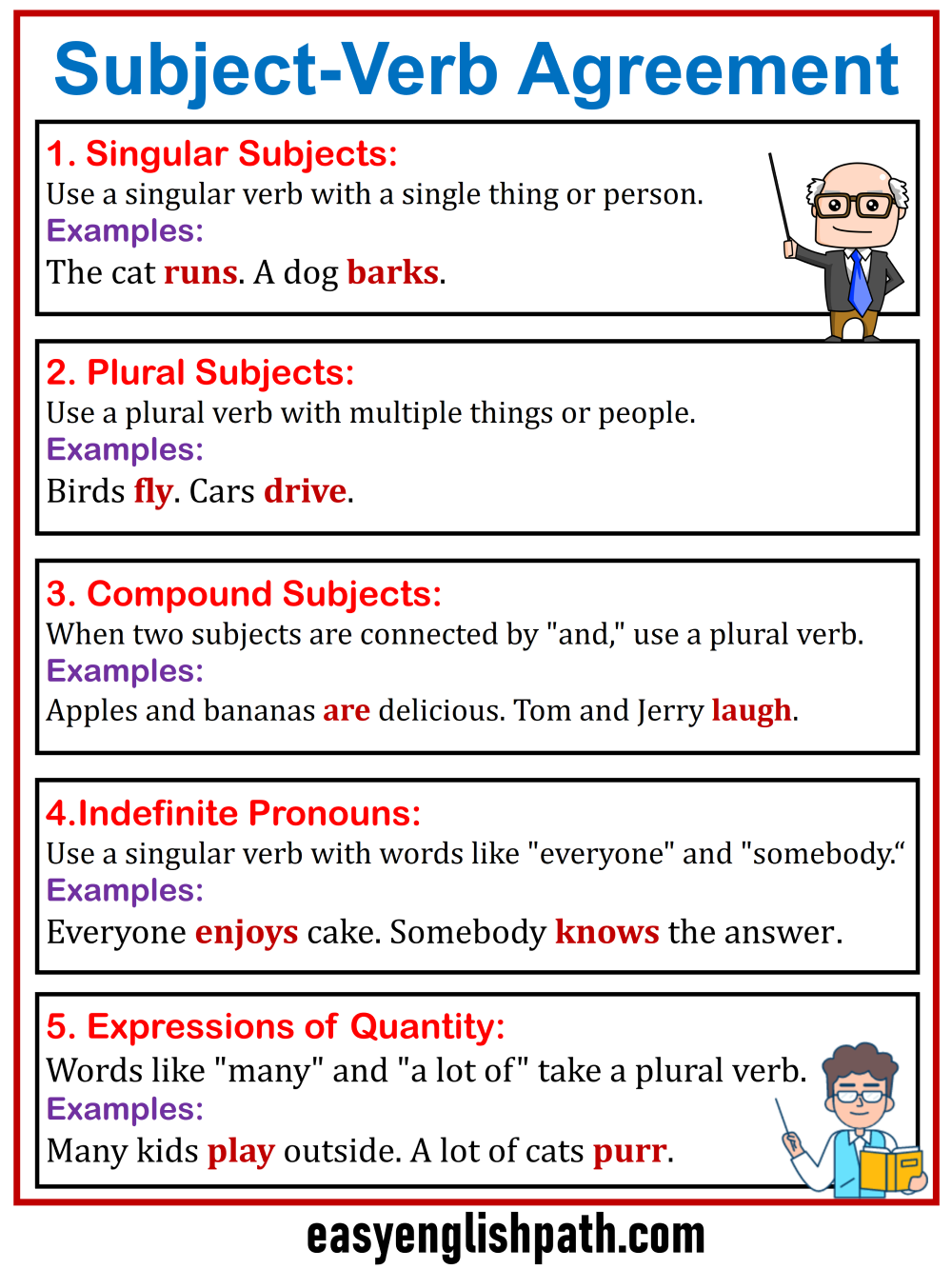It is a grammar rule that in a sentence, the subject is supposed to match with the number, quantity, and person. It is an essential rule that There should be agreement between the subject and verb. in the beginning, you might find it quite confusing but with continuous practice, you will be able to understand this rule. Below, I have explained some basic rules of subject-verb agreement which will surely help you understand how it works.
What is Subject-Verb Agreement?
Subject-verb agreement is a kind of rule in which the subject of a sentence has to match the verb in number. In other words, There must be an agreement between the subject and verb.
Subject-Verb Agreement Rules:
Rule 1. Singular Subjects:
You should use a singular verb with a single thing or person.
- The cat runs.
- A dog barks.
Rule 2. Plural Subjects:
You should use a plural verb with multiple things or people.
- Birds fly.
- Cars drive.
Rule 3. Compound Subjects:
When two subjects are connected by ‘And’ you should use a plural verb.
- Apples and bananas are delicious.
- Tom and Jerry laugh.
Rule 4.Compound Subjects with OR or NOR:
If one part of a sentence is singular, you should use a singular verb. If both parts of a sentence are plural, You should use a plural verb.
- Neither the cat nor the dog is hungry.
- Either the apples or the oranges are ripe.
Rule 5. Collective Nouns:
You should use a singular or plural verb depending on whether the group acts as one or as individuals.
- The team wins together.
- The team argue among themselves.
Rule 6. Indefinite Pronouns:
You need to use a singular verb with the following words: Everyone’ and Somebody.
- Everyone enjoys cake.
- Somebody knows the answer.
Rule 7. Indefinite Pronouns:
Exceptions:
Following words: All’ and Most’ can be singular or plural depending on context.
- All the candy is gone.
- All the books are interesting.
Rule 8. Expressions of Quantity:
The Following words always take plural verb. ‘Many and A lot of’
- Many kids play outside.
- A lot of cats purr.
Rule 9. Nouns with Prepositional Phrases:
In this case, the verb matches the subject, not the phrase’s object.
- The group of friends is coming.
- The box of toys has vanished.
Rule 10. Titles and Names:
Organizations or titles usually take a singular verb in a sentence.
- Microsoft creates software.
- The book is interesting.
Rule 11. Subjects that End in ‘S’:
There are singular nouns that end in ‘S’ can be singular or plural depending on meaning.
- The news is on TV.
- The news are shocking.
Rule 12. ‘There’ as a Subject:
The verb will match the noun if there is the following word: ‘There’.
- There is a cat on the roof.
- There are three apples on the table.
Rule 13. Intervening Phrases:
You need to ignore words between the subject and verb.
- The man, with his hat, is friendly.
- The kids, including Alice, play.
Rule 14. Indefinite Articles:
‘A’ and ‘AN’ always take a singular verb.
- A book is interesting.
- An apple tastes sweet.
Rule 15. ‘Each and Every’
You need to use a singular verb with ‘Each or Every.’
- Every student works hard.
- Each child receives a gift.
Subject-Verb Agreement Examples
- The cat sleeps.
- My friends are nice.
- She runs fast.
- The book is interesting.
- The birds sing.
- John and Sarah dance well.
- The profits have grown.
- The captain was honored.
- The students need to study.
- She sings beautifully.
You May Also Like






